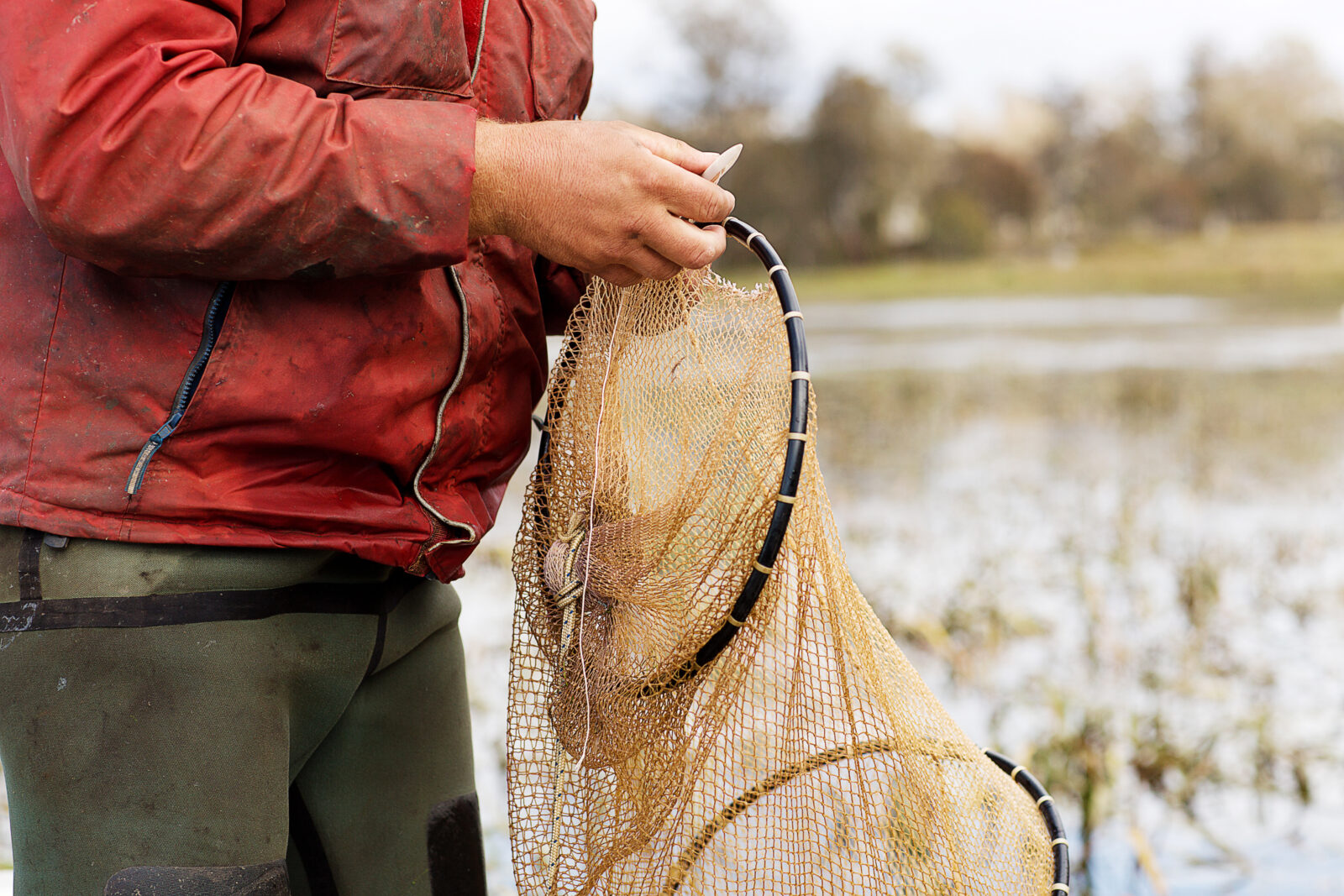Seven women, seven ideas: 2026 AgriFutures Rural Women’s Acceleration Grant recipients
 NATIONAL CHALLENGES AND OPPORTUNITIES / Monday, 8 May 2023
NATIONAL CHALLENGES AND OPPORTUNITIES / Monday, 8 May 2023
Real and tangible waste management actions that can be employed in agriculture
Key Points
- The Australian agriculture, fisheries and forestry sector generated an estimated 9.8 million tonnes of pre-farm gate waste in 2020-21.
- Agriculture, fisheries and forestry produce a large amount and diversity of waste, with waste disposal often involving environmentally harmful practices (such as burning, on-farm burying and dumping), landfill and the unproductive use of ‘end of first use’ resources.
- It is recommended that farmers and producers consider this data in conjunction with the Agriculture, Fisheries and Forestry National Waste and Resource Recovery Roadmap when developing waste management strategies.

The Australian agriculture, fisheries and forestry sector generated an estimated 9.8 million tonnes of pre-farm gate waste in 2020-21. Organic waste was substantially greater than plastic or workshop waste, however organic material is often used beneficially on farm such as through returning to the soil for improved soil health or reducing soil erosion risk.
The management of waste from primary industries is an emerging and complex issue which requires pressing attention. Agriculture, fisheries and forestry produce a large amount and diversity of waste, with waste disposal often involving environmentally harmful practices (such as burning, on-farm burying and dumping), landfill and the unproductive use of ‘end of first use’ resources.
In March 2021, AgriFutures Australia embarked on an exciting new initiative, the Pre-Farm Gate Waste Program, to align the agriculture, fisheries and forestry sector with Australia’s National Waste Policy.
AgriFutures Rural Futures General Manager, Michael Beer is excited by the findings of the program so far which are outlined in the first six reports:
- Towards circular material futures: Development of innovative solutions to recycle and re-purpose existing pre-farm gate waste
- Pre-farm gate waste management: Baseline waste data for the agriculture, fisheries and forestry sector
- Pre-farm gate waste management: Guidelines for waste data collection
- Options for improved waste management: Current practices and opportunities for improved pre-farm gate waste management in agriculture, fisheries and forestry
- Designing optimal solutions for workshop waste
- Agriculture, Fisheries and Forestry National Waste and Resource Recovery Roadmap
“The reports provide us with the baseline data on pre-farm gate waste in Australia which will better inform management practices, policies and investment,” said Mr Beer.
“Extensive engagement with more than 200 industry representatives throughout the project, including interviews, workshops and meetings, highlighted a desire within rural industries to improve waste and resource management, and industry support to facilitate this.”
The program was designed to look beyond current national initiatives to further minimise:
- Organic waste: Animal and plant organic matter, such as manure from farms and intensive animal systems, harvest waste, pruning and other organic matter.
- Plastic waste: Soil mulch films, nets and mesh, piping and irrigation, poly tunnels and silage wrap.
- Workshop waste: Fencing wire and treated timber (including copper chrome arsenate or CCA posts), tyres, oils, machinery and other inert and hazardous waste.
“With rural industries setting waste reduction targets and considering waste management in their sustainability frameworks means they can use this baseline data to track progress against targets,” said Mr Beer.
It is recommended that farmers and producers consider this data in conjunction with the Agriculture, Fisheries and Forestry National Waste and Resource Recovery Roadmap when developing waste management strategies.
Ensuring the agriculture, fisheries and forestry sector is well-equipped to tackle waste issues sustainably
The centerpiece and action driver of the program is the Agriculture, Fisheries and Forestry National Waste and Resource Recovery Roadmap which provides a clear pathway for how industries can deal with waste issues by applying the principles of a circular economy and the waste hierarchy.
Developed by RM Consulting Group (RMCG) the roadmap presents a cross-sectoral approach and is complementary to activities already being undertaken by individual Research Development Corporations (RDCs), state and federal governments and the National Farmers’ Federation.
It highlights the barriers to implementation of improved waste management practices and identifies the support that is required for each industry considering their specific needs, different waste streams and regional variances.
RMCG Principal, Dr Anne-Maree Boland explains that the roadmap highlights some of the barriers for producers to move up the waste hierarchy and identifies tangible and practical solutions to put in place.
“The roadmap provides an opportunity for primary industries to show their commitment to managing waste,” said Dr Boland.
The roadmap will ultimately assist individual sectors within agriculture, fisheries and forestry to take action – helping them identify what needs to be done, who needs to be involved and how they do it.
Australia’s rural industries have an opportunity to not only reduce their waste footprint but be part of the solution. There is also significant interest from the general community and consumers to better manage resources and reduce the generation of waste more broadly.
The program been produced as part of AgriFutures Australia’s investment in pre-farm gate waste research, which supports our priority of identifying, understanding and responding to national challenges and opportunities impacting Australian rural industries.
Visit Pre-Farm Gate Waste Program | AgriFutures Australia for more information.
[ENDS]
Latest News
-
Seven women, seven ideas: 2026 AgriFutures Rural Women’s Acceleration Grant recipients WORKFORCE AND LEADERSHIP / 08.05.23
WORKFORCE AND LEADERSHIP / 08.05.23 -
Basil Nolan’s Les Young Scholarship experience ‘a dream come true’ THOROUGHBRED HORSES / 08.05.23
THOROUGHBRED HORSES / 08.05.23 -
08.05.23
Working Together to Strengthen the Regional Agricultural Workforce -
Building a healthier future for sheep: Meet Horizon Scholar Chloe Frank WORKFORCE AND LEADERSHIP / 08.05.23
WORKFORCE AND LEADERSHIP / 08.05.23






